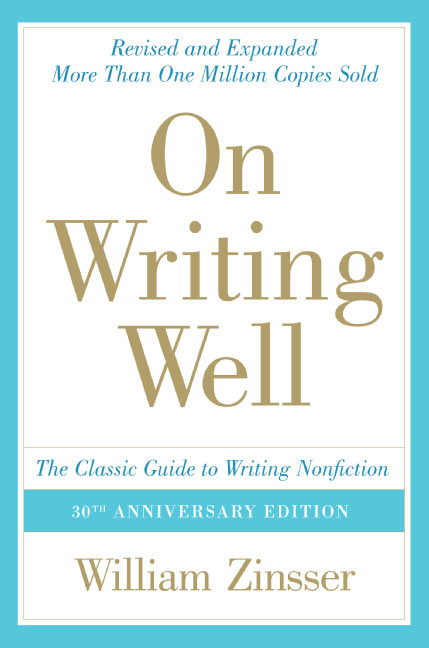by Jaclyn Y. Garver
Ivy Tech Community College Northeast
Fort Wayne, IN

On a recent trip to Barnes and Noble, I came across the journalist’s manifesto on the bargain table: “On Writing Well: The Classic Guide to Writing Nonfiction,” by William Zinsser.
Somehow during j-school, I never read this. But I heard about it, lots. So the hardback book that proclaimed “More Than One Million Copies Sold” (in 2008) became mine.
The entire first section, called “Principles,” should be required reading for anyone in marketing. If you write emails, letters and/or postcards that go out to prospects, applicants, current students, community members, alumni, staff or basically any English-speaking person, “Principles” can help your communications become more readable, more concise and more precise—which all leads to more people reading what you write. Emails to your staff will be shorter and yet still contain all that is necessary. Brochures for events will have a little extra oomph. Letters from your chancellors or presidents will sound more genuine.
And don’t knock these tips for longer-form pieces, either. They’re key for stories in newsletters or magazines. They’ll improve your capital campaign copy.
 “Principles” is 40 pages. You can breeze through it during a boring conference call. (Hey, just kidding. Kind of.) I’ve pulled out some key nuggets. They by no means take the place of reading Zinsser, but even if you put half of these suggestions into place tomorrow, you’ll notice an immediate improvement in your communications.
“Principles” is 40 pages. You can breeze through it during a boring conference call. (Hey, just kidding. Kind of.) I’ve pulled out some key nuggets. They by no means take the place of reading Zinsser, but even if you put half of these suggestions into place tomorrow, you’ll notice an immediate improvement in your communications.
De-clutter your writing. “Clutter is the disease of American writing.” It’s Zinsser’s first point in his second chapter, “Simplicity.” “We are a society strangling in unnecessary words, circular constructions, pompous frills and meaningless jargon.” For example: You don’t have to talk about actions that need to happen “at this point in time”—they need to happen now. Not “The college is experiencing a decline in enrollment,” but “Enrollment is declining.” As Zinsser points out, “Clutter is the official language used by corporations to hide their mistakes.” In short, be upfront with people.
Use everyday words. If you set out to dress up your words, the reader will notice, and it will sound insincere. An example: You don’t have to “implore” people to take action—just ask them. You’re not making “modifications” to the academic structure—you’re changing it.
Know the meaning of words. Seems obvious, but imprecise verbiage has its way of sneaking into copy. A big offender? “Unique.” It means “one-of-a-kind,” not “rare,” not “unusual” or “uncommon.” It means, “just one, ever.” No college or university has “unique” students, unless Big Foot has recently enrolled. It has, instead, students in unusual circumstances or students who are in the minority.
Use “I.” Go ahead and get personal with your audience. It’s not egotistical or undignified. You don’t need to say “one.” Writes Zinsser: “I don’t want to meet ‘one’—he’s a boring guy. I want a professor with a passion for his subject to tell me why it fascinates him.” People are bombarded with messages daily, messages from zoos, schools, hospitals, politicians. Go ahead and set yourself apart.
Maintain your tone throughout the piece. Too often, writing can start out conversational and jovial only to switch into official-speak when you get to the meat of a message. This is confusing for the reader—are you trying to be buddy-buddy or authoritative? Are you sharing or lecturing? Do you want to speak as the reader’s peer or supervisor? Before you start to write, figure out your purpose. Are you writing as an official? An equal? An average Joe or Jane? Do you want your tone to be informal or formal?
The nice thing about these points is they won’t take much extra work on your part, but they will make a world of difference to your audience.


STAY CONNECTED